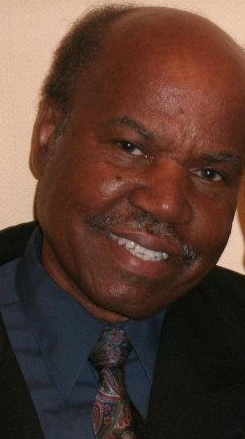 Every saint has a past, every sinner has a future. If we are going to move forward, we must step away from the past.
Every saint has a past, every sinner has a future. If we are going to move forward, we must step away from the past.
Those few words expressed above have been the hallmark of Christianity.
We have been called to forget and forgive the past and press forth toward that mark of the higher calling. A careful analysis of Christian acts will show that that attitude has been the overarching theme, the underlying current of the movement from the dawn of its inception.
The ongoing struggle in the Christian heart is always-- how do we make room in our father’s house for the one who is not one of us?
How do we maintain order and decency in the house of Lord?
How do we accommodate the sinner without approving of his sin?
What do we do with the one who clearly expresses and demonstrates vocal and violent opposition to our cherished tenets?
We cannot kill the artist who created a display of a cross, the revered symbol of our faith, in a jar of urine.
We do not issue an execution contract on a human being who publishes something unfavorable to our sect a la of Salman Rushdie, author of “Satanic Verses.”
We welcome the lesbian, the homosexual, the abortionist, the fornicator, the adulterer, the thief and the murderer, those whose lifestyles and actions directly contradict our “modus operandi.”
We must always accept and believe that if God saved us, then He can redeem them.
We must, by all means possible, short of total destruction, do everything we can to lovingly correct the one against us.
We do not have the moral authority to vilify, exclude, threaten, condemn or destroy the infidel.
God is the final judge.
“The kingdom of heaven is like a man who sowed good seed in his field; but while men slept, his enemy came and sowed tares among the wheat and went his way. But when the grain had sprouted and produced a crop, then the tares also appeared. So the servants of the owner came and said to him, Sir did you not sow good seed in your field? How then does it have tares? He said to them, an enemy has done this. The servants said to him, Do you want us then to go and gather them up? But he said, no, lest while you gather up the tares, you also uproot the wheat with them. Let both grow together until the day of harvest, and at the time of harvest I will say to the reapers, first gather the tares and bind them in bundles and burn them, but gather the wheat into my barn.” - Matt. 13: 24-29
Upon his next appearance on the earth, he will judge the quick and the dead and all those who were ill prepared or unconcerned about his coming.
 Since we are not omniscient, we are incapable of knowing who, when and how anyone can or will be saved. The ultimate question of who lives or dies must always remain in the hands of God. We have not been ordained or authorized to be the sword of the Lord. He has designated angels in heaven charged with that task, and in due course he will exercise his vengeance upon the earth and our mutual enemies.
Since we are not omniscient, we are incapable of knowing who, when and how anyone can or will be saved. The ultimate question of who lives or dies must always remain in the hands of God. We have not been ordained or authorized to be the sword of the Lord. He has designated angels in heaven charged with that task, and in due course he will exercise his vengeance upon the earth and our mutual enemies.
He is all powerful. He does not slumber nor sleep. His eyes run to and fro amongst the whole earth. That means he is fully aware and capable of taking care of his own business. He is well able to execute his plans without our support.
In the full passage of time his desire will prevail, and everything will fall into place, in accordance with his original intent.
Our sole duty and purpose is to do his commandments, and allow the chips to fall where they may, no matter how distasteful they may be unto us.
In the meantime we are to venture into every nook, cranny, back alley or slum inviting, importuning the least to the greatest into the house of the Lord to drink of that water where one would never thirst again.
For centuries, Jews had nothing to do with Samaritans, considering them dirty, mixed breed Gentile dogs. Indeed they would go out of their way so as not to set foot in their territory or neighborhood.
One day, Jesus filled his alarmed disciples with consternation when he declared:
Jesus realized that the Pharisees were keeping count of the baptisms that he and John performed (although his disciples, not Jesus, did the actual baptizing). They had posted the score that Jesus was ahead, turning him and John into rivals in the eyes of the people. So Jesus left the Judean countryside and went back to Galilee.
To get there, he had to pass through Samaria. He came into Sychar, a Samaritan village that bordered the field Jacob had given his son Joseph. Jacob’s well was still there. Jesus, worn out by the trip, sat down at the well. It was noon.
A woman, a Samaritan, came to draw water. Jesus said, “Would you give me a drink of water?” (His disciples had gone to the village to buy food for lunch.)
The Samaritan woman, taken aback, asked, “How come you, a Jew, are asking me, a Samaritan woman, for a drink?” (Jews in those days wouldn’t be caught dead talking to Samaritans.)
Jesus answered, “If you knew the generosity of God and who I am, you would be asking me for a drink, and I would give you fresh, living water.”
The woman said, “Sir, you don’t even have a bucket to draw with, and this well is deep. So how are you going to get this ‘living water’? Are you a better man than our ancestor Jacob, who dug this well and drank from it, he and his sons and livestock, and passed it down to us?”
Jesus said, “Everyone who drinks this water will get thirsty again and again. Anyone who drinks the water I give will never thirst—not ever. The water I give will be an artesian spring within, gushing fountains of endless life.”
The woman said, “Sir, give me this water so I won’t ever get thirsty, won’t ever have to come back to this well again!”
He said, “Go call your husband and then come back.”
“I have no husband,” she said.
“That’s nicely put: ‘I have no husband.’ You’ve had five husbands, and the man you’re living with now isn’t even your husband. You spoke the truth there, sure enough.”
“Oh, so you’re a prophet! Well, tell me this: Our ancestors worshiped God at this mountain, but you Jews insist that Jerusalem is the only place for worship, right?”
“Believe me, woman, the time is coming when you Samaritans will worship the Father neither here at this mountain nor there in Jerusalem. You worship guessing in the dark; we Jews worship in the clear light of day. God’s way of salvation is made available through the Jews. But the time is coming—it has, in fact, come—when what you’re called will not matter and where you go to worship will not matter.
“It’s who you are and the way you live that count before God. Your worship must engage your spirit in the pursuit of truth. That’s the kind of people the Father is out looking for: those who are simply and honestly themselves before him in their worship. God is sheer being itself—Spirit. Those who worship him must do it out of their very being, their spirits, their true selves, in adoration.”
The woman said, “I don’t know about that. I do know that the Messiah is coming. When he arrives, we’ll get the whole story.”
“I am he,” said Jesus. “You don’t have to wait any longer or look any further.”
Just then his disciples came back. They were shocked. They couldn’t believe he was talking with that kind of a woman. No one said what they were all thinking, but their faces showed it. John 4:4-27
The great oxymoron of Christianity is that it is exclusive and inclusive all at the same time. We sincerely believe that the only way to God and heaven is belief and acceptance of Jesus Christ, yet we must make room at the cross for everyone. Moreover, we must allow you to reject that assertion as narrow minded, illogical, or utter nonsense, and loudly proclaim and convince other people of the same without hazarding your well-being or your life.
We love you any way in, whatever condition you may have placed yourself. We will go to great lengths to preach, teach and persuade you of the validity of our claim, but in the final analysis, we must accept and respect your right of refusal.
 V. Knowles is a husband, father and prison minister with an interest in penning issues that serve to uplift mankind. He melds his love for Classic literature, The Bible and pop culture - as sordid as it may be - into highly relatable columns of truth, faith and justice. Hence the name: Just Thinking. If he's not buried in a book or penning his next column, you may find him pinned to his sectional watching a good old Country and Western flick.
V. Knowles is a husband, father and prison minister with an interest in penning issues that serve to uplift mankind. He melds his love for Classic literature, The Bible and pop culture - as sordid as it may be - into highly relatable columns of truth, faith and justice. Hence the name: Just Thinking. If he's not buried in a book or penning his next column, you may find him pinned to his sectional watching a good old Country and Western flick.


